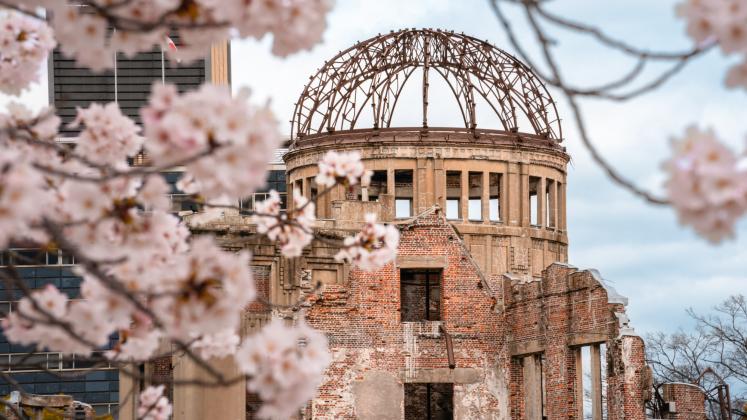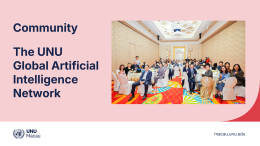This August marks two anniversaries heavy with meaning — not only for Japan, but for humanity: 80 years since the atomic bombings of Hiroshima and Nagasaki, and 80 years since the founding of the United Nations. These momentous events reshaped the global order and bear urgent lessons for leadership today.
I recently spoke at Hiroshima Ikeda Memorial Hall under the auspices of Soka Gakkai International — an event deeply rooted in memory, dignity, and the pursuit of peace. From the voices of hibakusha — atomic bomb survivors — to the halls of global policy, the message is the same: history demands responsibility.
For future‑focused leaders — from Accra to Addis Ababa — the founding pledge of the Charter of the United Nations remains resonant: “to save succeeding generations from the scourge of war”. Reaffirmed in the recent Pact for the Future and the Declaration on Future Generations, this commitment calls on leaders of all types to embrace long‑term stewardship over short‑term gains.
Africa’s rapid digital transformation makes this message especially urgent. Emerging economies across the continent are adopting AI in fields from agriculture to finance, but insufficient governance could transform opportunity into catastrophe.
Artificial intelligence (AI) offers enormous promise; it can predict conflict, scale health systems, enable post‑conflict recovery, and support inclusive growth. Yet the same tools may sharpen the edge of conflict: autonomous weapons, AI‑driven misinformation and cyber‑escalation.
In 2023, leading AI experts warned that unchecked AI could pose an existential risk on par with nuclear war. This is not hypothetical; it is a governance gap that demands urgent attention. In Hiroshima, we confront both devastation and determination: a city not defined by loss, but by renewal. Its story exemplifies how purpose, policy, and technology must intersect for societies to thrive. That is equally true for the continent: peace and prosperity are intertwined.
Hiroshima's story exemplifies how purpose, policy and technology must intersect for societies to thrive.
Africa has both an opportunity and a responsibility: to lead in ethical AI, and to shape regulation anchored in values. Mechanism design, transparency, inclusive data practices, and regional cooperation must define Africa’s AI future, not external mandates.
As we observe Hiroshima and Nagasaki, we observe not merely the past, but our shared future. Justice, development, and trust must be built not by arms but by empathy and foresight. Sustainable Development Goal 16 — promoting peaceful and inclusive societies — is foundational. Yet the UN’s 2025 SDG report shows only 35% of targets are on track or making moderate progress. We must accelerate our ambition developmentally and institutionally.
Africa’s leaders — from policymakers to entrepreneurs — are called not just to react, but to imagine. By 2085, those who inherit our cities and institutions will ask: What kind of legacy did you build? Did you steward peace with courage and clarity?
Hibakusha remind us that memory is not inertia; it is moral fuel. Viable futures are built when institutions empower citizens with knowledge, voices with dignity, and systems with integrity. That is why platforms like the United Nations University exist — to combine research, education and dialogue toward sustainable solutions.
While tragedy once ushered in the United Nations, the real test now is whether human values can guide technological power.
While tragedy once ushered in the United Nations, the real test now is whether human values can guide technological power. AI is no exception to the moral calculus: machines should extend, not replace, our judgment; and enhance, not erode, our agency.
As Viktor Frankl observed, “Since Auschwitz, we know what man is capable of. And since Hiroshima, we know what is at stake.” In Africa, we must ask: how can we ensure the stakes are not ceded to machines, but claimed by conscience?
Hiroshima may seem distant, but its essence speaks to African boardrooms, parliaments, and communities alike. It reminds us that renewal is not the product of rebuilding alone, but of resolving not to repeat the horrors of the past. That resolve is Africa’s opportunity: to lead with innovation anchored in ethics, foresight and human dignity.
Suggested citation: Tshilidzi Marwala. "Hiroshima’s Lessons for Africa — Building Peace in the Era of AI," United Nations University, UNU Centre, 2025-08-14, https://unu.edu/article/hiroshimas-lessons-africa-building-peace-era-ai.






